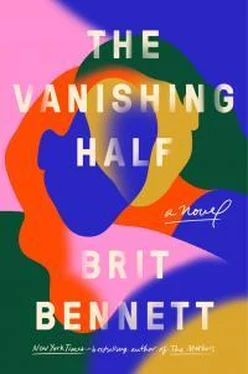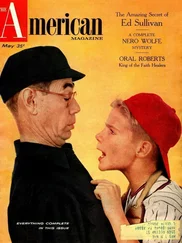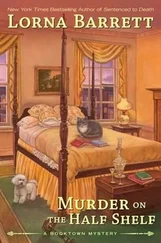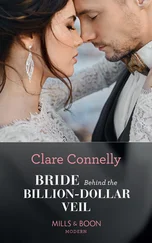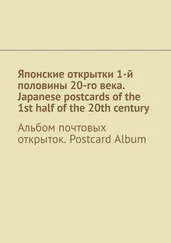All spring, they’d broken up slowly, one piece at a time, picking little arguments, making up, making love, then starting the whole cycle all over again. Twice, she’d almost moved in with Barry; it was better to break up now than delay the inevitable, she told herself, but each night, she slept in Reese’s bed. She couldn’t fall asleep anywhere else.
That year, the first snow had arrived earlier than she’d expected, tiny flurries falling on Halloween. She’d stared out the window of Moos Tower, watching undergraduates scurry past in their costumes. She was thinking about her cowboy sitting on the couch in that crowded party and, again, tried not to cry. But that night, she found him outside her apartment door in a black knit cap covered in snowflakes, a canvas bag slung over his shoulder.
“Goddamn,” he said. “I’m so goddamn stupid sometimes, you know that?”
At the university, she met a black endocrinologist willing to write Reese a prescription for testosterone. They had to scrimp each month to afford it out of pocket, but those street drugs would wreck his liver, Dr. Shayla said. She was blunt but kind—she told Reese, scribbling onto her pad, that he reminded her of her own son.
Now, lying in bed across from him, Jude kissed his closed eyelids.
“What do you say?” she asked.
“Really?” he said. “You want me to?”
“I don’t think I can go back there without you.”
She’d fallen in love with him when she was eighteen. She hadn’t slept a night away from him in three years. In a dingy New York City hotel room, she’d slowly unwrapped his bandages, holding her breath as cool air kissed his new skin.
—
ALZHEIMER’S DISEASE WAS HEREDITARY, which meant that Desiree would always worry about developing it. She would begin filling out crossword puzzles because she’d read in some women’s magazine that brain puzzles could help prevent memory loss.
“You’ve got to exercise your brain,” she would tell her daughter, “just like any other muscle.”
Her daughter didn’t have the heart to tell her that the brain was, in fact, not a muscle. She tried her best to help her with the clues while she imagined Stella out in the world somewhere, already forgetting.
—
JUDE WINSTON’S HOMETOWN, which had never been a town at all, no longer existed. And yet, it still looked the same. She stared out the window of Early’s truck, which surprised her when he’d met them in Lafayette. She still expected the El Camino. “That car’s older than you,” Early said, laughing. “I had to junk it.” He was wearing his refinery coveralls, which also struck her, Early in a uniform. He pumped Reese’s hand and pulled her into a hug, kissing her forehead. His beard scratchy like she’d remembered it.
“Look at you,” he said. “All grown up. Can’t hardly believe it.”
He still looked strong even though his hair was beginning to gray, silver creeping up his sideburns, threading through his beard. When she teased him about it, he laughed, touching his chin. “I’m gonna cut it off,” he said. “Rather walk around babyfaced than lookin like Santa Claus.”
“How’s Mama?” she said.
He wiped his forehead, pushing back his baseball cap.
“Oh she all right,” he said. “You know your mama. She tough. She’ll push through.”
“I wish I’d been here,” she said. But she wasn’t sure if she meant that. She’d never known what to say around her grandmother anyway. But she wished she could have been there for her mother, who was never supposed to endure this alone. There were supposed to be two women comforting her grandmother at the end, one on each side of the bed, one holding each hand.
“It’s all right,” Early said. “Nothin you could’ve done. We just glad to have you now.”
She squeezed Reese’s thigh. He squeezed hers back. He was staring out the window, lips slightly parted. She knew he missed this, not sun-dappled beaches or frozen city sidewalks but brown countryside rolling flat into acres of woods. The white shotgun house appeared, looking the same as she’d remembered, which seemed wrong since her grandmother would not be sitting on the porch to greet them. Her death hit in waves. Not a flood, but water lapping steadily at her ankles.
You could drown in two inches of water. Maybe grief was the same.
—
SHE SPENT THE EVENING helping her mother cook for the repast. Early went to finalize everything at the funeral home and brought Reese with him. She stared out the kitchen window, watching both men climb into the truck, wondering what on earth they’d find to talk about.
“Y’all still happy?” her mother said. “He treat you good?”
Desiree wasn’t looking at her, bent over the oven to pull out the tray of yams.
“He loves me,” Jude said.
“That’s not what I asked. That’s two separate things. You think you can’t ever hurt nobody you love?”
Jude chopped celery for the potato salad, feeling that familiar surge of guilt. Four years she’d known about Stella and hadn’t said a word. She’d never expected that Stella would reemerge on her own, that one morning her mother would call her, fighting tears, and expose her lies. She’d apologized as much as she could, but even though her mother said she forgave her, she knew that something had shifted between them. She’d grown up in her mother’s eyes, no longer her daughter but a separate woman, complete with her own secrets.
“Do you think—” She paused, scraping the celery into a bowl. “Do you think Daddy loved you?”
“I think everybody who ever hurt me loved me,” her mother said.
“Do you think he loved me?”
Her mother touched her cheek. “Yes,” she said. “But I couldn’t wait around to see.”
—
THE MORNING OF THE FUNERAL, Jude awoke in her grandmother’s bed because, her mother told her, two unmarried people would not be sharing the same bed in her house. She was still trying to nudge them down the aisle, if a statement that obvious could be considered a nudge. She did not know that Jude and Reese had talked, once or twice, about marriage. They wouldn’t be able to, not without a new birth certificate for Reese, but still they talked about it, the way children talk about weddings. Wistfully. Her mother thought they were hip intellectuals who considered themselves too cool for marriage. Which was better than her understanding just how romantic they were.
Jude carried clean sheets to her old bedroom, helped Reese make the bed, not even pointing out that her mother and Early were also unmarried, in the eyes of the law and the Church. She couldn’t fall asleep until morning. She wondered, foolishly, if she might feel her grandmother’s presence somehow. But she felt nothing and that was worse.
In the hallway, she turned, pinning back her hair, while Reese zipped her black dress.
“I could hardly sleep last night,” she said. “Without you there.”
He kissed the back of her neck. He was wearing his good black suit. Her mother had asked him to help carry the casket. She’d heard them talking last night in the kitchen while she brushed her teeth. Her mother told Reese that she considered him a son, wedding or not, but she hoped at least that he wouldn’t make her wait forever to become a grandmother.
“I’m not sayin it has to be now,” her mother was saying. “I know y’all both busy. But someday, that’s all. Before I’m old and gray and can’t hardly move around. You would make a good daddy, don’t you think?”
He was quiet a minute. “I hope so,” he said.
—
NEAR THE END OF HER LIFE, Adele Vignes had told Desiree stories about her childhood that were so vivid, Desiree wondered if her mother was confusing them with her soap operas. A girl she’d hated in school who’d tried to push her down a well. Her brothers dressed in all black to steal coal. A poor boy bringing her a carnation corsage for senior prom. She’d bring up one of these anecdotes in front of the television, where she sat watching her soaps each afternoon. The shows seemed like the perfect form for her. Each day, the stories inching forward, but at the end of the week, the world essentially unchanged, the characters exactly who they had always been.
Читать дальше
